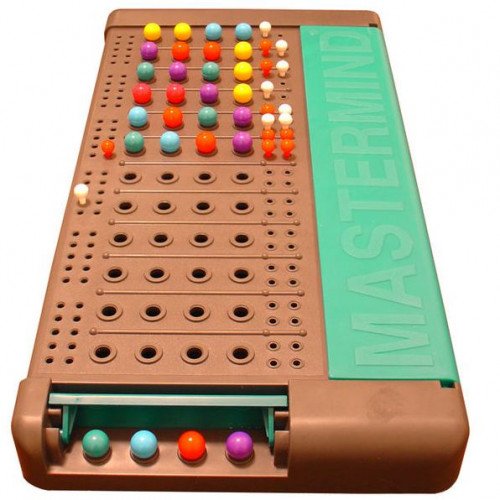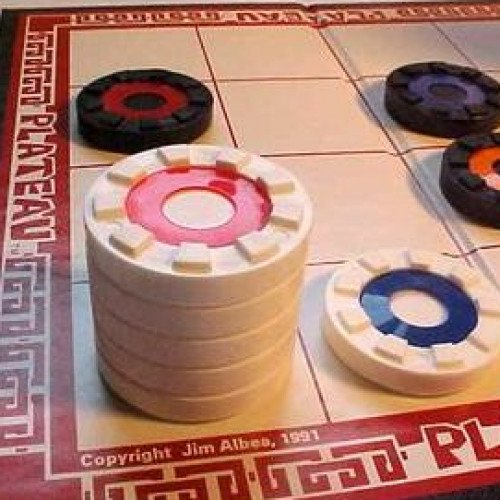MASTERMIND VS PLATEAU

MASTERMIND
Mastermind or Master Mind is a code-breaking game for two players. The modern game with pegs was invented in 1970 by Mordecai Meirowitz, an Israeli postmaster and telecommunications expert.It resembles an earlier pencil and paper game called Bulls and Cows that may date back a century. The game is based on an older, paper based game called Bulls and Cows. A computer adaptation of it was run in the 1960s on Cambridge University’s Titan computer system, where it was called 'MOO'. This version was written by Frank King. There was also another version for the TSS/8 time sharing system, written by J.S. Felton and finally a version for the Multics system at MIT by Jerrold Grochow. The modern game with pegs was invented in 1970 by Mordecai Meirowitz, an Israeli postmaster and telecommunications expert. Meirowitz presented the idea to many major toy companies but, after showing it at the Nuremberg International Toy Fair, it was picked up by a plastics company, Invicta Plastics, based near Leicester, UK. Invicta purchased all the rights to the game and the founder, Edward Jones-Fenleigh, refined the game further. It was released in 1971–2. Since 1971, the rights to Mastermind have been held by Invicta Plastics. (Invicta always named the game Master Mind.) They originally manufactured it themselves, though they have since licensed its manufacture to Hasbro worldwide, with the exception of Pressman Toys and Orda Industries who have the manufacturing rights to the United States and Israel, respectively. Starting in 1973, the game box featured a photograph of a white man in a white jacket seated in the foreground, with a young Asian woman of high caste standing behind him with the golden symbols of office visible on her sari, denoting the power and intellect behind the throne. The two amateur models (Bill Woodward and Cecilia Fung) reunited in June 2003 to pose for another publicity photo.
Statistics for this Xoptio

PLATEAU
Plateau is a two-player abstract strategy board game invented by Jim Albea. The game was developed over a two-year period culminating in its present form on May 12, 1986. The original name for the game was Pinnacle, but it was discovered that an older board/card game had that name, so around 1989 the name was changed to Plateau. From the 1980s through the 1990s Plateau was played at Science Fiction conventions mostly in the Southeastern United States. From the 1990s to the present, the game is played live at an online game site and via email. In 1997 a computer implementation of the game was created which facilitates email play and has a computer robot. Onboarding is adding one new piece to the play. This new piece can be placed anywhere that doesn't directly harm an opposing piece. For instance, you can onboard to any blank square or on top of any of your own pieces. The majority of Plateau moves are onboards. Instead of Onboarding or Moving, a player can choose to spend his turn exchanging prisoners. Prisoners are exchanged using the point values of the pieces. A simple value-for-value system is used. Since the pieces range in value from 1 point (for the mute) to 21 points (for the Ace) there are usually several combinations and options available for the players. The player initiating the exchange selects the pieces he wishes to exchange. These pieces will all add up to some point value. The responding player then has four options depending on the point values of the prisoners that he holds.